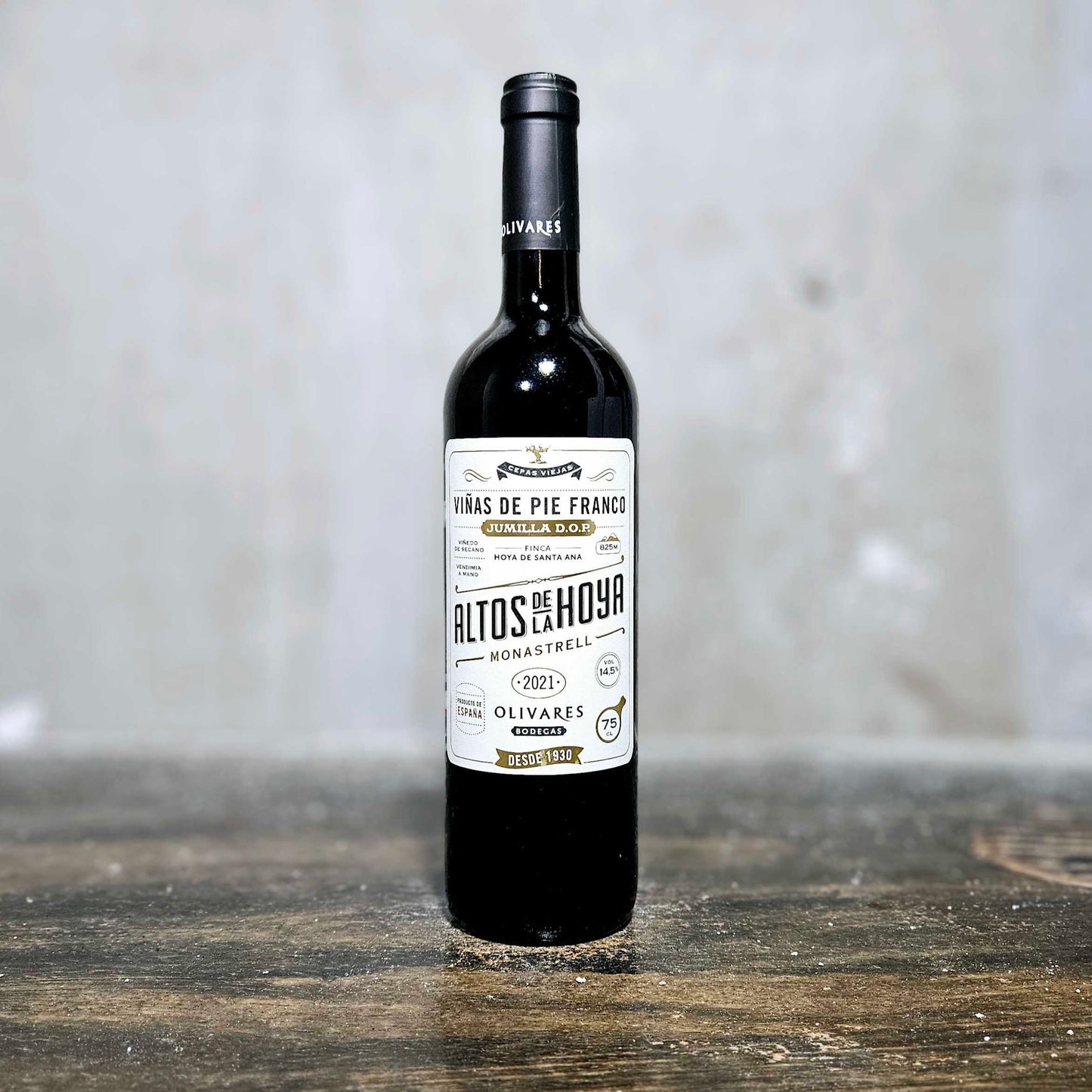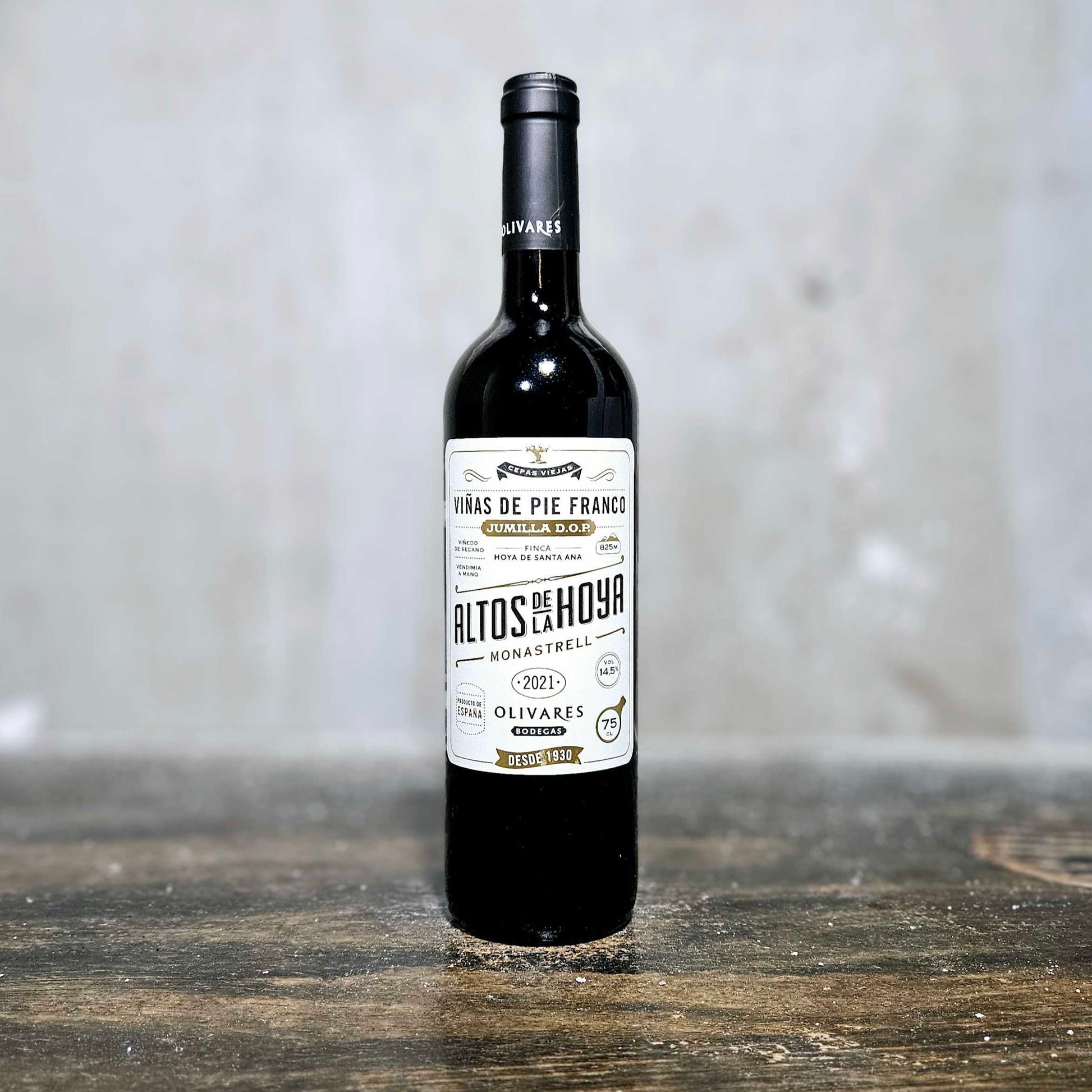Bodegas Olivares
Bodegas Olivares - Altos de la Hoya, Jumilla, Spain (2021)
Bodegas Olivares - Altos de la Hoya, Jumilla, Spain (2021)
Regular price
$31.00
Regular price
Sale price
$31.00
Unit price
per
Couldn't load pickup availability
TASTING NOTES
A big BBQ red but with real freshness and drinkability from the dried Mediterranean herbs, sandy texture and bright acidity. Smoked meat, plush blackberries and plum jam.
| REGION | Spain > Jumilla |
| GRAPE(S) |
90% Monastrell, 10% Grenache |
| VINTAGE | 2021 |
| FORMAT | 750ml Bottle |
| ABV | 12.5% |
| FEATURES | Organic |
| SCALE | Dry |
Ungrafted vines planted as far back as 1872, on sandy soils over chalk at 825m. Harvested during the beginning of October. Macerated up to 30 days, fermented in stainless steel tanks. Aged 6 months in French oak, a combination of barrels and 60hl oak tanks.
Jumilla continues to produce some of the world’s great wine values. The region’s native Monastrell—Mourvèdre elsewhere—is one of the most prized varieties of Mediterranean Europe. Yet Jumilla has a diversity of terroirs, certain of which clearly transcend mere “value.” And the wines of the Selva family’s Bodegas Olivares have done just that, thanks to a singular terroir and 65 hectares of ungrafted prephylloxera vines.
Olivares’ estate vineyard, Finca Hoya de Santa Ana, is located in Jumilla’s northwestern quadrant, at over 800 meters elevation, where nights cool down quickly, resulting in wines with astounding freshness and equilibrium. Perhaps more importantly, sandy chalky soils give Bodegas Olivares’ wines their perfumed aromatics, and were also anathema to the Phylloxera root louse that devastated all but a handful of Europe’s vineyards in the late 1880s.
Almost as important as the ungrafted vines is the fastidious care they have enjoyed. Generations of consistent pruning mean the vines are far less twisted, and usually much healthier, than similar plots elsewhere in Spain. With steady wind and a dry climate, there is little disease pressure; thus there was never any need to adopt chemical fertilizers or pesticides. In fact, Paco estimates that the vineyards have been farmed sustainably since the 1930s!



